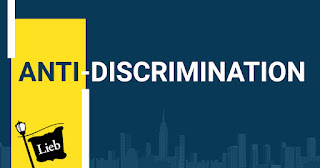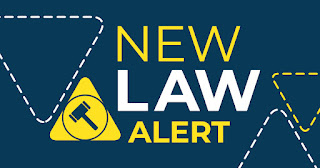Discrimination in real estate is illegal throughout the
United States and in certain states, like New York, there are even greater
protections, rights, and damages available to victims.
Whether you were discriminated against by a seller,
landlord, tenant co-op, condo, HOA, lender, real estate broker / salesperson, or
property manager, you are entitled to compensation. This is true in housing and
at places of public accommodation (i.e., shopping center, professional office,
retail store, educational institution, recreational facility, and service
center). This is often even true if the discrimination was unintentional or
caused by the perpetrator's implicit biases.
Anti-discrimination rights and protections entitle victims
to sue for compensation if discrimination occurred because of your protected
status / protected class, which statuses / classes vary throughout the United
States, but may include your race, ethnic background, visible traits (hair
texture, hairstyle, donning of religious garments or items), color, national
origin, citizenship status, alienage status, immigration status, lawful source
of income (subsidy recipient status), occupation, religion, creed, marital
status, partnership status, sex, gender, sexual orientation, gender identity or
expression (transgender status), domestic violence victim status, stalking
victim status, sex offense victim status, familial status, pregnancy, presence
of children, handicap (disability), age, military status, uniformed service,
veteran status, first responder status, arrest record, and sealed conviction
record.
The law prevents real estate / housing providers from
changing the terms, conditions, privileges, and/or availability of property
based on your protected class status. It requires real estate brokers /
salespersons to give you written disclosures that advise you of your rights. It
prevents you from being treated differently from others where only the terms of
your offer matter, not who you are.
If you are handicapped / disabled, you are also entitled to
receive reasonable accommodations (change to policies / procedures / rules) and
reasonable modification (change to structure) so that you can equally use and
enjoy property. Plus, your actual diagnosis need not be fully revealed and can
remain confidential when you seek such an accommodation / modification. Better
yet, the cost of the accommodation cannot be charged to you, and in places like
New York City, this is also true for the cost of modifications. The most common
handicap / disability cases that we see involve service animals / emotional
support animals in no pet properties, preferential / parking and ingress /
egress ramps for mobility impairments, and other failure-to-accommodate cases.
We are also involved in ADA failure-to-remove barrier cases and more. When it
comes to handicapped / disabled people, it's all about providing access.
If you receive subsidies, like Section 8 (Housing Choice
Vouchers), or you are unemployed (i.e., retired, spousal / child support
recipient, trust fund baby, student, disabled), your source of income cannot
impact your housing choices. You are protected from offensive signage, improper
applications, and/or wrongful questionnaires if they inquire about your
employment status, request your W-2, or even solicit a letter of employment.
Simply, seeing your voucher cannot be a prerequisite to seeing / viewing an
apartment. Where you get the rent should be no one's business.
Don't be afraid to speak-up. If you are advancing a fair
housing and/or anti-discrimination right, you are protected from retaliation.
Even if it is ultimately found that you were not discriminated against, you can
nonetheless be compensated for facing unlawful coercion, intimidation, threats,
or other types of interference with your anti-discrimination rights. This is not just true if you are advancing your own rights, it also applies if you
are an ally who is aiding and/or encouraging someone else to exercise their
rights to be free from discrimination.
Fair housing laws make housing available to everyone without
stigma, loss of dignity, or other harms. If you are a victim, you can recover
compensatory damages (being made whole), punitive damages (punishment damages),
and your attorneys' fees. The perpetrator can lose their license (if licensed),
be required to take trainings, and be ordered to stop their offensive behavior.
There are fines and more. Discrimination is wrong and must be stopped.
*Attorney advertising




